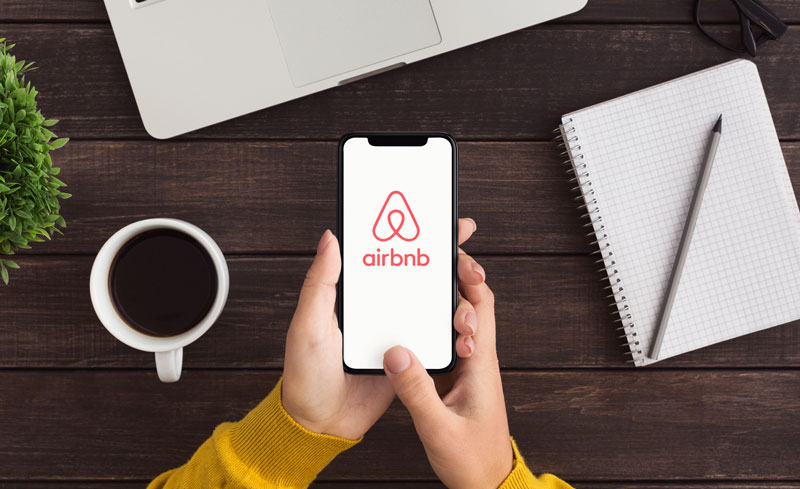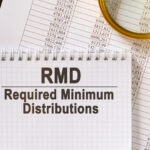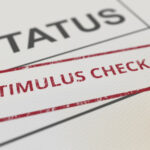As of this writing, the federal government is still in a “partial shutdown”, and things are starting to fray around the edges, even for those whose paychecks aren’t being affected. Already, it’s the longest in history.
Which, for a media starving for any kind of controversy … well, no doubt you’ve already heard about it.
Who knows … by the time you get this, things could be back to “normal” (is that word even operative these days?), but here’s one thing that won’t stop during this shutdown, however long it lasts: your taxes.
That’s right, the IRS confirmed last week that they will remain operational during the shutdown, your taxes will STILL be due this year (including your estimated ones, if that applies to you), and the official start of tax filing begins on January 28th. But refunds might yet be affected. We’ll keep you posted.
All this shutdown business aside, but while we’re still on the subject of taxes, I have been meaning to write on this topic for some time now, as more and more of our Jackson Heights area clients are affected by it.
I’m talking about Airbnb, VRBO and the like. Because if you’re not careful, you could be creating for yourself a tax and financial headache.
Understanding Your Jackson Heights area Airbnb And Taxes
“Travel makes one modest. You see what a tiny space you occupy in the world.” -Gustav Flaubert
Have you ever wondered why vacation rental home services like Airbnb or VRBO are so popular? It’s not because of refrigerators stocked with free food. Trust me … I check (every time). Not surprisingly, the reason for their surge in popularity is demand.
There are many reasons why that’s the case, too many to go into here. Needless to say, the model works.
And one of the reasons it works is because it works for the hosts.
So, let’s take a look at a few things you need to consider before you start making side income through renting out your home…
14: The Goldilocks Number
13 is too few, 15 is too many … but 14 days is just right, and here’s why:
If you rent out a dwelling unit (a residence you live at longer than 14 days/year or at least 10% of the days you rent it to others at a fair rental price) through an online service, and the amount of days rented out equals 14 or less, you don’t have to report any of the rental income (but nor can you deduct expenses as rental expenses). This same 14-day rule applies the same if you only rent out one room of your dwelling unit. Not paying tax on a couple weeks worth of vacation rental income is a sweet deal, all while putting a roof over someone’s head.
The 14-day-and-under rule is a great option if the area where you live hosts a major event or two throughout the year that brings in the masses. But if hosting an increased amount of visitors (for an increased amount of income … and taxes) doesn’t phase you, then book away to 15 days and beyond.
If the IRS comes knocking at your door because you didn’t include the income on your return, all you’ll need to do is prove the income was within the 14-day rule. You’re all set.
Record Everything … In Detail
If you have never started a business, but like the thought of doing so one day … running a short-term vacation rental can be your training wheels. Keeping detailed notes and records of the days you rent out the space is an important aspect of this decision (tracking whether you remain under, or exceed the 14-day rule).
If you do end up taking the plunge to rent out your Jackson Heights area home beyond that 14-day period, then, you have the opportunity to deduct ordinary and necessary expenses. Towels, toiletries, ten-dollar bottles of wine to greet your guests upon arrival: all can be deducted from your rental income.
The more detailed you are at keeping records for this “bed and breakfast” business, the less you need to worry about scrounging up proof for the IRS.
Important to Note: If you don’t fill out a W-9 form that most vacation rental sites require at the beginning of operation, you are subject to lose 28% of your rental income.
Go the Extra Mile
Vacation rental services charge a service fee to their paying customers — you might have noticed this at checkout if you’ve ever booked online. When companies like Airbnb send hosts (potentially you!) their 1099 form which includes the amount of service fees accrued in addition to rental income for the year, hosts have the opportunity to deduct the host service fees if they rented out their space more than 14 days during the year.
And while you are in the business of serving others by opening your space, we encourage you to be the hostess with the mostest and offer amenities like breakfast and toiletries. Why? Because it’s nice. ALSO, because the IRS might treat you as self-employed if you do.
Self-employment means paying self-employment taxes in addition to income tax. But there are a host of other benefits to be had from having your own “business”, with other tax implications, etc. But that is an article for another day. 🙂
Lastly, in your quest to make a little extra income this year and serve travelers from all over, let us remind you that life is more than earning 5-star reviews … it’s mostly about walking into a room with hot coffee provided. We trust you’ll make that happen. 🙂
I hope this helps. There are additional tax rules to be aware of, and we can help you apply the available deductions in the most tax-advantageous way possible.
Warmly,
Eakub Khan
(718) 424-6300
Eakub A. Khan CPA P.C.














